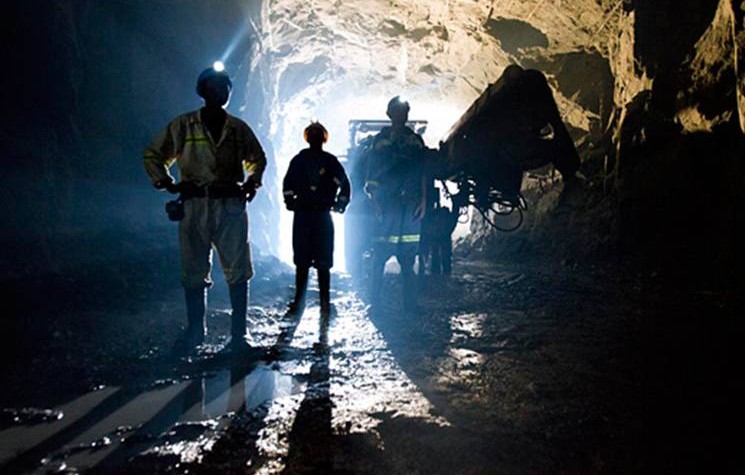Mwana Africa’s Major Chinese Investor Is Trying To Take The Company Over On The Cheap

By Alastair Ford
Contrary to popular belief, not all Chinese investors have an endless supply of US dollars. Sure, the great parastatals do, and their investments are dictated largely by policy and the necessity of securing supply. But further down the food chain, things are a little different.
And it’s further down the food chain that we go in the case of Mwana Africa, which brought in a certain Mr Yat Hoi Ning as a major shareholder some years ago, amid a fanfare – partly of Mr Ning’s own making – which trumpeted the new opportunities he would create in terms of access to Chinese capital and funding and the ease with which that access would allow Mwana to cut deals in Africa.
Fast forward to 2015 and before the first full week of business is out the two parties – Mwana Africa and Yat Hoi Ning and associates – have faced off legally and appear to have fallen out irrevocably. The showdown isn’t quite imminent but unless a resolution is found it is coming, as a trial window of three months has now been set from 1st November 2015.
What’s behind this dispute? Money, of course. Or the lack of it. The nuts and bolts relate to control of the board, currently headed up by interim chairman Stuart Morris and ably assisted by long-standing chief executive Kalaa Mpinga.
At the company’s last AGM in Decemeber Yat Hoi Ning objected to two board appointments, only to be told in no uncertain terms that although his investment was welcome, the terms on which it was secured do not allow him to dictate the composition of the board.
In fact, his attempt to do so contradicted the terms of what’s known as the “Relationship Agreement” that he signed back in 2012.
Mr Ning for his part argues that his votes should be counted after all, in spite of the stipulations of the relationship agreement, and he’s prepared to go to court to force his point. But even though he controls, together with associates, 29 per cent of the company, the fact that he signed such the agreement in the first place appears to undermine his case before it’s even started.
For those who take an interest in these matters, the case will be heard in England under English and Welsh law. So there’s unlikely to be any jiggery pokery there. And as far as Mwana’s assets are concerned, Kalaa Mpinga is so well networked in Zimbabwe, where the company has two operating mines, and elsewhere across the continent that any idea that Mr Ning might be able to secure control of the assets through direct intervention or expropriation is a nonsense. Hardly surprising then, that Mwana’s shareholders weren’t exactly shaking in their boots, and that the shares were virtually unmoved at 2.1p when news of the November trial window was released.
So what then is Mr Ning doing? The answer appears to be that he’s desperately scrabbling around for cash, or if not cash then at least for hard assets.
Commodities traders who have dealings with Mr Ning’s own commodities business report that he’s broke. Put in that light his latest manoeuvres seem to make more sense. After all, he has control of 29 per cent of a company with a market capitalisation of £29 million, surely natural justice should dictate that he be able to exert influence at board level, and if not to make strenuous efforts to try to make that influence felt.
If he were to secure a more significant influence at Mwana, then the Zimbabwean assets might potentially be used to mitigate financial difficulties elsewhere in his trading empire. Precisely how remains unclear – perhaps he would seek to monetise assets, subvert dividend policy or cut deals other than the ones Kalaa Mpinga and the Mwana team might otherwise cut.
But the short version is: he’s trying to take control without making a bid. That’s a minor tick in the box for Mwana: at least it proves the assets are worth having.
But unfortunately Hat Yoi Ning can’t make a formal bid, so the market gossip goes, because he’s broke.
That leaves Mwana itself in something of a quandary. There seems little doubt that in England, under English and Welsh law, Mwana will win the case against Hat Yoi Ning. And there seems little doubt that when that happens, Mwana will also remain firmly in control of its assets in Africa. So, goodbye Mr Ning. Except that he will remain a 29 per cent shareholder.
So, one way or another, perhaps along the way finding Mr Ning a way of not losing face, Mwana will probably have to find a buyer for that 29 per cent stake. Mr Ning’s average purchase price was 3.5p, some way from the current 2.1p, but not an inconceivable distance.
Ultmately, one would have thought that his best strategy would have been to get behind the company in terms of promote and strategy and help get the share price up to a point where he’s in the money again. After all, the shares were touching 4p back in August.
But there has clearly been a parting of the ways. Mr Ning wants control of the board, and at this stage the Mwana board is not prepared to give it to him.

Comments (0)